R.C. Sproul's Blog, page 539
March 16, 2012
Session 8, Del Tackett — 2012 National Conference
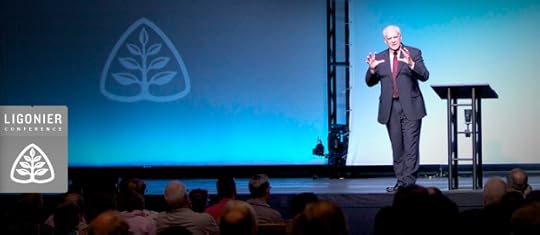
The eighth session of the 2012 Ligonier National Conference was a plenary address by Dr. Del Tackett titled "When Worlds Collide."
The complete audio and video of Dr. Tackett's session will be available soon, but below are a several highlights from his message.
The real conflict is between contradictory truth claims
Physical worlds are not really colliding. Nations rise against nations and human beings against other human beings, but those are not the real conflicts. The real conflict is between contradictory truth claims. There are many worldviews, which are sets of truth claims that purport to describe reality. Obviously they cannot all be true because they are contradictory.
A worldview is a set of truth claims that purports to paint a picture of reality. —Del Tackett live.ligonier.org #lmnc
— Ligonier Ministries (@Ligonier) March 17, 2012
The idea behind postmodernity is very old
Jean-Francois Lyotard defined postmodernism as incredulity to all metanarratives. Postmodernism scoffs at any suggestion that there is a larger story that gives an all-encompassing explanation for everything. But while postmodernism is a recent phenomenon, this idea is very old. God taught Adam and Eve the larger story. Satan said it was not a good story and was, in fact, an attempt to oppress them.
The "story" of today's generation
Young people today have been raised in a story that says, "It's all about you." We live in a world filled with manipulators. Everyone wants to manipulate everyone else to enhance his or her own story. This leads to the death of relationships, to isolation, to alienation, to a rejection of authority, and to loneliness. True relationships are built on sacrifice. When we find out we cannot convince others to honor our scripts, we become angry, hateful, bitter, depressed, and despondent.
What does this have to do with the Christian mind? Everything. All of us are prone to attempt to write our own scripts, and all of us may experience having our scripts trashed. We must believe God's metanarrative and live on the basis of it.
Click here to learn how to watch the live stream of the conference.
 Dr. Del Tackett is the author and architect of Focus on the Family’s The Truth Project, a nationwide initiative advocating the importance of developing a Christian worldview. He is a former director of technical planning for the U.S. National Security Council, and is currently an adjunct professor at New Geneva Theological Seminary and Summit Ministries.
Dr. Del Tackett is the author and architect of Focus on the Family’s The Truth Project, a nationwide initiative advocating the importance of developing a Christian worldview. He is a former director of technical planning for the U.S. National Security Council, and is currently an adjunct professor at New Geneva Theological Seminary and Summit Ministries.

Session 7, Michael Horton — 2012 National Conference
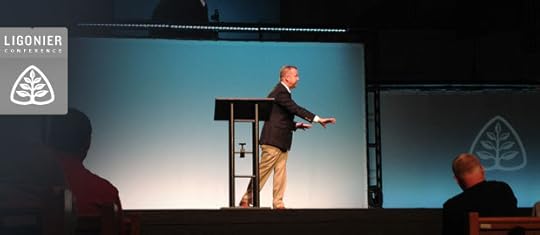
In the seventh session of the 2012 Ligonier National Conference, Dr. Michael Horton addressed "The Fear Factor." Instead of entirely focusing on what Christians fear, Dr. Horton spent the substance of his session particularly expounding four reasons why we shouldn't be afraid in today's world.
The complete audio and video of this session will be available soon, but below are a several highlights from his message.
We shouldn't be afraid because:
This is our Father's world
This world is our Father's world, and as such it makes for a great time to recover our nerve as we give a defense of the hope that is within us. Our agnostic, atheistic, and pantheistic friends share this world with us, and they cannot escape that it is indeed our Father's world, not theirs. And in this world God is not speaking through the tongues of angels, instead, He speaks through the tongues of men and women like you and me.
This is our Father's story
The story we are to proclaim, the good news of the gospel, is not our own—it is our Father's. We must not be telling people about ourselves. It is when we're talking about Jesus and what He has done that we're talking about the good news that saves.
The only way we can know God is if God decides to stoop to our level. —Michael Horton #lmnc
— Ligonier Ministries (@Ligonier) March 16, 2012
Dr. Horton walked through Romans 1:1-6, but gave pointed attention to the fact that this is "...the gospel of God." It's not about our achievements or what we have done. It is all about God and what He has done for us. Sinful men and women do not have ears to hear or eyes to see until God gives them.
This is our Father's work
Dr. Horton reminded us that it is the Father that promises, the Son who is the promise, and the Spirit who is the one who brings about the intended effect of this promise in history and in us.
Sadly, unlike the Apostles who offered arguments based on their eye witness accounts of real, historial events, most Christians today offer a reasoned defense of their faith by simply singing, "You ask me how I know He lives? He lives within my heart!"
This is our Father's kingdom
Christians should not be afraid as it is not our job to build a kingdom. It is our Father's kingdom, and it is a kingdom we are receiving:
Therefore let us be grateful for receiving a kingdom that cannot be shaken, and thus let us offer to God acceptable worship, with reverence and awe... — Hebrews 12:28
This is our Father's Kingdom. This Kingdom will last because we didn't build it. —Michael Horton #lmnc
— Ligonier Ministries (@Ligonier) March 16, 2012
Click here to learn how to watch the live stream of the conference.
 Dr. Michael Horton is a scholar, pastor, professor of systematic theology and apologetics, and president of White Horse Media where he co-hosts the weekly radio program. He is also the author of many books including For Calvinism.
Dr. Michael Horton is a scholar, pastor, professor of systematic theology and apologetics, and president of White Horse Media where he co-hosts the weekly radio program. He is also the author of many books including For Calvinism.

Session 6, Stephen Meyer — 2012 National Conference
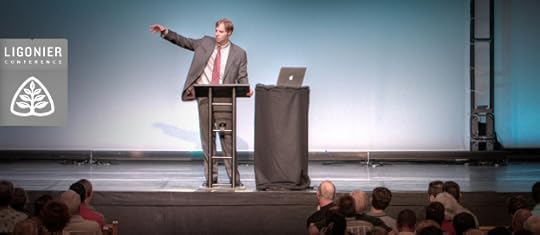
In the sixth session of the 2012 Ligonier National Conference, Dr. Stephen Meyer discussed a revolution in scientific thinking that has produced a new openness to "the God hypothesis"—the belief that the universe is the product not merely of natural processes but of the Creator.
The so-called new atheists—the late Christopher Hitchens, Sam Harris, and Richard Dawkins—represent the perspective that science, properly understood, renders belief in God untenable. Dawkins argues that the best argument for God was always the argument from nature, but now that we know nature arose by natural processes, we know that God either does not exist or leaves no evidence of His existence.
This perspective conflicts with the biblical view. The psalmist says the heavens declare the glory of God (Ps. 19). He looks at nature and talks about something beyond nature. The new atheists' view is also directly opposed to the view of early modern scientists such as Robert Boyle, Johannes Kepler, and Isaac Newton. Many of the leaders of the scientific revolution were devout men of faith. They had a deep conviction that nature was intelligible because it was made by a rational intellect.
How did we get from Newton to Dawkins, from the idea that nature displays the handiwork of the Creator to the idea that nature shows there is no Creator?
The view that the God hypothesis was no longer necessary took hold in the eighteenth and nineteenth centuries. This view became a philosophy—scientific materialism. This is the idea that everything has come from matter and energy, which have been here from eternity past. By the end of the nineteenth century, leading intellectuals were coming around to this materialistic worldview. Science itself, with all its origin theories, seemed to support it. The key idea in the materialistic worldview is that there is nothing beyond the physical sphere.
This view is now very much the witness of the academy and the culture. But even though this worldview is still culturally pervasive, the basis of it has evaporated. Recent discoveries in science have undermined the materialistic worldview and support a theistic worldview. Three discoveries especially have led to this change.
1. The expansion of the universe. Astronomers found evidence that the universe is expanding.
Expansion implies that the universe is finite, that it had a beginning. Some scientists find this idea repugnant because it suggests matter and energy are not eternal. However, the first words of the Bible are, "In the beginning. . . ." The Bible also says the plan of creation existed before time, which implies that time had a beginning, and science is beginning to show this, too.
2. The fine tuning of the expansion.
Physicists have discovered that the expansion rate of the universe is exquisitely finely tuned. If it were not, life would not be possible. The universe would not be a suitable place for life. Everything is delicately balanced to make life possible. About three dozen of these fine-tuning parameters have been discovered. This led Sir Fred Hoyle (1915–2001) to say: "A common sense interpretation of the data suggests that a superintellect has monkeyed with physics as well as with chemistry and biology."
3. Information at the molecular level.
The discovery of the DNA double helix has led to the discovery that there are four "bases" along the spine of the double helix. The proteins in the cells of our bodies are built according to information stored in these bases on the DNA code. It is their arrangement that is important. If arranged properly, the bases provide instructions for cells to build processes they need to stay alive.
This means that information is running the show in even the simplest cells. The "information revolution" has been at work since the beginning of life itself. But where did this information come from? There is only one known cause of information, and that is a mind. The discovery of information that is necessary for life points to a designer.
Thus, we see evidence of design well after the beginning of life. The best explanation is the theistic design hypothesis. The reality of God explains everything from the expansion of the universe to the evidence for information in the cell. In short, God is both transcendent and immanent.
Dr. Meyer concluded: "I think this is an exciting time to be a person of faith who is active in science. I think Paul was right—the things that are made do reveal the reality of the Creator."
Click here to learn how to watch the live stream of the conference.
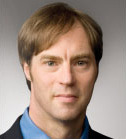 Dr. Stephen Meyer earned is Ph.D. in philosophy of science from Cambridge University. He is the founder of the Center for Science and Culture and is the author of Signature in the Cell: DNA and the Evidence for Intelligent Design.
Dr. Stephen Meyer earned is Ph.D. in philosophy of science from Cambridge University. He is the founder of the Center for Science and Culture and is the author of Signature in the Cell: DNA and the Evidence for Intelligent Design.

Session 5, Sinclair Ferguson — 2012 National Conference

The fifth main message of the 2012 Ligonier Ministries National Conference was from Dr. Sinclair Ferguson and titled, "Losing My Religion." Dr. Ferguson described the endemic problem of doctrinal shallowness. He encouraged all of us to wrestle with the deep things of God and to stretch ourselves by reading some of the great theologians of the past.
The complete audio and video of this session will be available soon, but below is an overview of his message.
Dr. Ferguson opened today's lecture with a reading of Psalm 119:97–100.
In the conservative Christian community, there is an enormous tendency to blame the world for everything that goes wrong and to blame ourselves for very little.
Christianity in our culture really is a mile wide and an inch deep.
Unfortunately, however, we are specialists at blaming others for this problem.
We need to be delivered from the notion that we have gotten it right in our churches. Until we do, the church can never grow strong.
The people of God, the Church, needs to recommit themselves to being Bible people who call on the name of the Lord in constant pleading prayer.
Dr. Ferguson provided three reasons to pursue deeper knowledge of God.
Pursuing a deeper knowledge of God is the reason for which God regenerated us.
We need to pursue a deeper knowledge of God because of the specific teaching of our Lord Jesus Christ who commanded us to love the Lord our God with all of our mind.
We have to pursue a deeper knowledge of God because this is what has life-transforming power.
What do you think about when you have nothing else to think about? This question will tell you a lot about yourself.
He then explained three strategies that might enable us to do it.
We must place our lives under a living ministry of the Word of God.
Dr. Ferguson quoted John Stott who said: "Sermonettes produce Christianettes."
We must dig deeply into the Word of Go for ourselves.
We must learn together with all the saints – don't be embarrassed if you can't discuss the latest book if you can discuss the greatest books.
Dr. Ferguson made two suggestions: Read Calvin's Institutes of the Christian Religion and John Owen's On Communion with God.
Click here to learn how to watch the live stream of the conference.
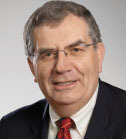 Dr. Sinclair Ferguson is a pastor, professor of systematic theology, and Ligonier Ministries Teaching Fellow. He is also a member of the Council of the Alliance of Confessing Evangelicals, a prolific author whose many books include By Grace Alone, and one of the most renowned Reformed theologians of our day.
Dr. Sinclair Ferguson is a pastor, professor of systematic theology, and Ligonier Ministries Teaching Fellow. He is also a member of the Council of the Alliance of Confessing Evangelicals, a prolific author whose many books include By Grace Alone, and one of the most renowned Reformed theologians of our day.

Session 4, R.C. Sproul Jr. — 2012 National Conference
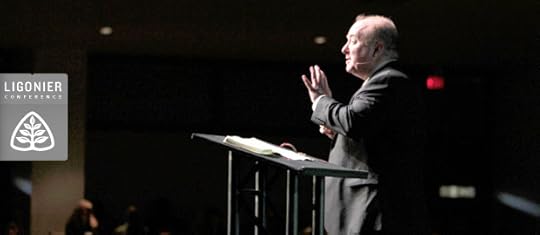
Dr. R.C. Sproul Jr. began the second day of the 2012 Ligonier Ministries National Conference, speaking on "The (True) Scandal of the Evangelical Mind." A recent popular book argued that the scandal of the evangelical mind is that the evangelical mind is essentially non-existent. But as Dr. Sproul Jr. argued, the problem is even deeper. The complete audio and video of this session will be available soon, but below is a brief overview of his message.
Dr. Sproul Jr. began by reminding his hearers that God took on flesh in Christ. He lived a life of perfect obedience. He died a victim of His theological and political enemies. But three days later, He walked out of His tomb alive. Forty days after that, He ascended into heaven. From there, He will come to complete history. Those who trust His provision will enjoy eternal bliss. Those left on their own will suffer eternal anguish.
This is the evangelical story, our story, and we not only believe this story but cling to it. However, to those outside the kingdom of God, this story is foolishness, a scandal, a stumbling block. Unbelievers think we are crazy and call us fools. That prompts several "scandals" concerning the evangelical mind.
The first great scandal is that we are scandalized that the world is scandalized.
We who embrace the gospel that is an offense to the world are offended that the world is offended by us. We insist that the world consider us to be smart, reasonable, and sensible. However, the Devil causes Reformed Christians to think: "We're not like them. We're the brain of the church, the smart ones. We read fat books and use long theological terms. How could anyone think we're stupid?" The reality is that Reformed believers are still fools and blind guides because they still have massive logs in their eyes.
The second great scandal is that evangelicals are not really evangelical.
Evangelicals historically have been defined as those who believe the gospel story. But the word evangelical is also supposed to communicate a concern for the evangel, the gospel. All believers are supposed to be concerned about lost souls, but Reformed Christians complain about the wrong ways others do evangelism while failing to do it themselves. Reformed believers are less interested in proclaiming the evangel than in complaining about how others do it.
The third great scandal is not that evangelicals are not smart enough but that evangelicals are not good enough.
Because we are proud of our minds, we do not rest in God's revelation alone but try to bring our own minds to the table. It is not the calling of the church to improve its reputation. We should be willing to be thought fools, to recognize that all our sophisticated arguments are filthy rags. We were rescued from foolishness; we didn't "smart" our way out of it. Our scandal as evangelicals is that we are not repentant about our minds.
We need to get out of the way. There is power in the Word. We must not mix our dross with God's gold.
Click here to learn how to watch the live stream of the conference.
 Dr. R.C. Sproul Jr. is the founder, director, and a teacher for Highlands Ministries and is a Ligonier Ministries Teaching Fellow. He is a professor of apologetics and philosophy, travels extensively as a conference speaker, and has written several books including The Call to Wonder.
Dr. R.C. Sproul Jr. is the founder, director, and a teacher for Highlands Ministries and is a Ligonier Ministries Teaching Fellow. He is a professor of apologetics and philosophy, travels extensively as a conference speaker, and has written several books including The Call to Wonder.

$5 Friday: Evangelism, Jesus, and the Crucifixion
It's $5 Friday sale time. Today's resources cover such topics as evangelism, Jesus, the crucifixion, John Knox, ethics, and apologetics.
Sale runs through the new time of 12:01 a.m. — 11:59 p.m. Friday EST.
View today's $5 Friday sale items.

March 15, 2012
Session 3, Albert Mohler — 2012 National Conference
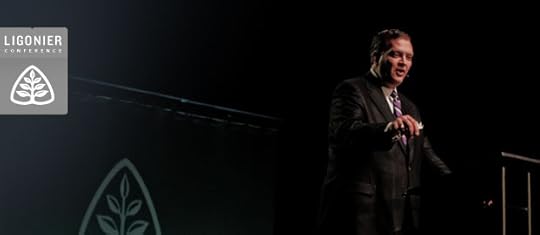
The third message of the 2012 Ligonier Ministries National Conference was from Dr. Albert Mohler and titled, "I've Got Half a Mind Too." Dr. Mohler explored the world's way of thinking due to the fall—a way of thinking that Christians have been set free from by God's grace. He challenged us all to think like Christians.
The complete audio and video of this session will be available soon, but below are a few highlights from his session.
Christians need to unapologetically think about thinking
Most human beings never take the time to think about thinking. The Christian, however, is called to be different: we must perpetually and unapologetically think about thinking. This need is essential because how we think affects how we act. A Christian's faithfullness depends upon them thinking faithfully.
In addition, Christians are called to understand not only how they think, but also the mind of the age. As we desperately seek to communicate the gospel to our age, we need to have an understanding of how they think.
The knowledge crisis is ancient
The crisis in how man thinks isn't new. Genesis 3 comes not only with cosmic consequences, but brought about a massive change in human thinking. Dr. Mohler read and spoke on Romans 1:18-32 and commented that all humans are involved in a "conspiracy," a conspiracy to suppress the truth. As Christians, we need to recognize that we are only set free from this conspiracy by the grace of God in the gospel.
14 Noetic Effects of Sin
Dr. Mohler gave fourteen noetic effects of sin, that is, fourteen ways the fall affected our thinking.
Ignorance
Distractedness
Forgetfulness
Prejudice
Faulty Perspective
Intellectual fatigue
Inconsistency
Failure to draw right conclusions
Intellectual apathy
Dogmatism and closed-mindedness
Intellectual pride
Vain imagination
Miscommunication
Partial knowledge
Click here to learn how to watch the live stream of the conference.
 Dr. Albert Mohler president of the Southern Baptist Theological Seminary, is a prominent voice within evangelicalism and a frequent guest on national news programs. He has also written or contributed to several books including Atheism Remix and Whatever Happened to Truth?
Dr. Albert Mohler president of the Southern Baptist Theological Seminary, is a prominent voice within evangelicalism and a frequent guest on national news programs. He has also written or contributed to several books including Atheism Remix and Whatever Happened to Truth?

Session 2, Robert Godfrey — 2012 National Conference
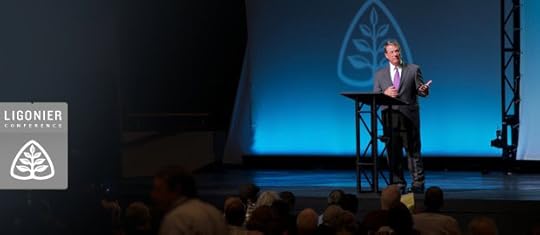
The second message of the 2012 Ligonier Ministries National Conference was from Dr. Robert Godfrey and titled, "We Don't Need No Education." Dr. Godfrey reminded us that at one time Christians, particularly Reformed Christians, were the intellectual leaders in America, but that this is no longer the case. He explained the role that anti-intellectualism played in this self-inflicted problem and what we must do to turn it around.
The complete audio and video of this session will be available soon, but below are a few highlights from this challenging session.
Anti-intellectualism is a recurring problem in the history of Christianity.
Some Christians believe the Bible teaches (1 Cor. 8:1) – "Knowledge puffs up."
One of the most misused texts in the Bible.
Knowledge inevitably leads to pride and arrogance. The antidote is to flee knowledge.
One of the main proponents of this view was Jerome – one of the most learned men in the early church.
St. Francis of Assisi – They should pray more than they study.
Augustine - It is possible to have great wisdom without much knowledge, and it's possible to have great knowledge without wisdom.
Paul in 1 Corinthians 8:1 is talking about knowledge that has been distorted and misused.
In the nineteenth century a new attitude began to dominate in America.
The shift was epitomized by the election of Andrew Jackson to be President.
Power passed from the snobs to the mobs.
There was not only a political shift, but a wholesale cultural shift.
Democracy became the byword not just for our politics, but for our way of life.
There was a revolt against experts in medicine, the legal profession, and ministers.
If the Bible is clear, why do we need experts to tell us what the Bible says?
As Americans moved West, the landscape of American Christianity changed.
In the late eighteenth century, most American Christians were Presbyterians and Congregationalists. Fifty years later, most American Christians were Methodists and Baptists.
In the late eighteenth century, most American Christians were postmillennialists.
The attitude was: we need to be doers not thinkers.
This anti-intellectualism is both dangerous and unnecessary.
Christianity is fully capable of glorious intellectual defense and propagation.
There has been opposition to the truth of Christ.
It has come to dominate the world in which we live, but not because Christianity is incapable defense.
It is because Christians retreated and gave up.
An intellectual defense of the faith is important to encourage Christians and to cause non-Christians to pause and think.
Christianity is capable of scholarly defense.
We have begun to see a resurgence of a commitment to an intellectual defense of Christianity in the last several decades.
Religion has prospered while theology has gone bankrupt.
The result is not no theology, but lots of bad theology.
Calvin said: Nothing is as arrogant as ignorance.
 Dr. Robert Godfrey is the president of Westminster Seminary California, professor of church history, and a Ligonier Ministries Teaching Fellow. He is a member of the board of Ligonier Ministries and the author of An Unexpected Journey and many other titles.
Dr. Robert Godfrey is the president of Westminster Seminary California, professor of church history, and a Ligonier Ministries Teaching Fellow. He is a member of the board of Ligonier Ministries and the author of An Unexpected Journey and many other titles.

Session 1, R.C. Sproul — 2012 National Conference
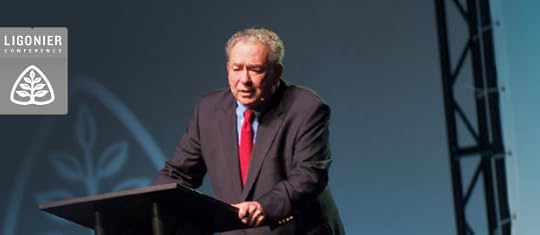
Dr. R.C. Sproul opened the 2012 Ligonier National Conference, examining the theme The Christian Mind. In his lecture, carrying the provocative title "Have You Lost Your Mind?" he stated that we are living in the most anti-intellectual climate in the history of the church. "There has been a wholesale rejection of the significance of the mind in living, particularly Christian living," he said.
Dr. Sproul then proceeded to examine the relationship of the mind to the body, the will, and the heart. The complete audio and video of this session will be available soon, but below are some highlights.
First, Dr. Sproul explored the relationship between the mind and the body.
Dr. Sproul asked audience members to raise their right hands. He then explained that he made a request, that he gave the audience "a piece of his mind," assuming that his hearers would understand it. When they heard it, they understood and responded with a bodily action. He then asked: How can an idea, which is non-physical, give rise to a physical action, which is material? What is the relation of mind to matter?
The brain is material, he affirmed, but the mind is not. We must distinguish between the organ in our bodies and the thoughts we have. This crucial distinction is the reason why, when we die, we continue to have a consciousness that endures forever.
If I want to know what you really believe...I have to look at your life. —R.C. Sproul #lmnc
— Ligonier Ministries (@Ligonier) March 15, 2012
Dr. Sproul then summed up the long history of philosophical speculation about the relationship between thoughts and actions. Although the relationship is not fully understood, from the biblical perspective, there is a relationship. The Bible says, "As he thinks in his heart, so is he" (Prov. 23:7). The life reveals the way a man thinks.
Second, Dr. Sproul explored the relationship between the mind and the will.
We tend to think the faculty of choosing is found in the will, Dr. Sproul said. But where is the will located? To ask the question another way, what is the will? How does it function?
The magisterial work on this question is The Freedom of the Will by Jonathan Edwards. He defined the will as "the mind choosing." So although we distinguish between mind and will, Edwards said choices are a function of the mind. In the final analysis, for a choice to be made, there is a voluntary conscious choice. We consider our options, inclinations, and desires, and choose what our minds deem to be best for us at the moment. Not only may we choose what we most want to do at a given moment, we must choose what we want to do at that moment. This means we never choose anything against our wills. All the things we do are voluntary acts.
We might say that choosing according to our strongest inclinations means our freedom is restricted. It is a kind of determinism. But it is self-determinism, which is the very essence of freedom.
In our natural state, we have no inclination to choose the things of God. We want to escape Him. We cannot make a decision to choose an inclination. The inclination must change if the decision is to change. Only God can change our natural inclination.
Third, Dr. Sproul explored the relationship between the mind and the heart.
In his book Classical Apologetics, Dr. Sproul said that in the Christian life we recognize both the primacy of the mind and the primacy of the heart. That sounds contradictory, but he meant that each is primary in a certain sense.
When we stand before God, He will look upon the heart. This means the heart is more important than the mind. However, there cannot be anything in the heart that is not first in the mind. If we want the heart to change, we must change the mind. That is what Christian sanctification is all about—the renewal of the mind (Rom. 12:12).
Click here to learn how you can watch the live stream of the conference.
 Dr. R.C. Sproul is the founder and chairman of Ligonier Ministries, president of Reformation Bible College, and can be heard teaching daily on the radio program Renewing Your Mind, which broadcasts on hundreds of radio outlets in the United States and worldwide. Dr. Sproul is also senior minister of Saint Andrew's, a Reformed congregation in Sanford, Fla., and he has authored more than seventy books on theology, apologetics, and other topics, including Defending Your Faith, Lifeviews, and The Donkey Who Carried a King. Dr. Sproul and his wife, Vesta, have two children, eleven grandchildren, and two great-granddaughters.
Dr. R.C. Sproul is the founder and chairman of Ligonier Ministries, president of Reformation Bible College, and can be heard teaching daily on the radio program Renewing Your Mind, which broadcasts on hundreds of radio outlets in the United States and worldwide. Dr. Sproul is also senior minister of Saint Andrew's, a Reformed congregation in Sanford, Fla., and he has authored more than seventy books on theology, apologetics, and other topics, including Defending Your Faith, Lifeviews, and The Donkey Who Carried a King. Dr. Sproul and his wife, Vesta, have two children, eleven grandchildren, and two great-granddaughters.

March 14, 2012
Charles Spurgeon on Calvinism — Total Depravity
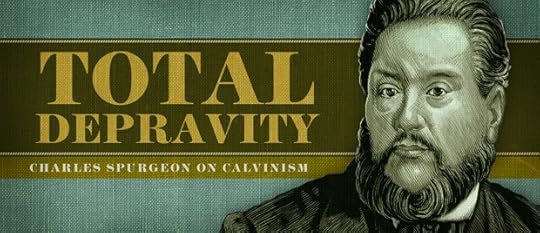
In Steven Lawson's latest book, The Gospel Focus of Charles Spurgeon, Lawson argues that Charles Spurgeon's fervent commitment to the doctrines of grace "sharpened" his "gospel focus." So what exactly did Spurgeon believe about the five points of Calvinism? Using excerpts from The Gospel Focus of Charles Spurgeon, we'll answer that question in what will be a five part series on the blog. Our prayer is that these truths will sharpen your gospel focus also.
Today we discover what Charles Spurgeon believed about the doctrine of Total Depravity.
Charles Spurgeon clearly understood that before an evangelist can communicate the good news of salvation, he first must convey the bad news of condemnation. The black velvet backdrop of man's sin must be laid out before the sparkling diamond of God's sovereign grace can be seen in its dazzling luster. This begins with the Bible's teaching on Adam's sin, which brought about death. Spurgeon asserted:
But Adam's sin did not affect only himself. His fallen nature spread to the entire human race, and every part of every person is fatally plagued by spiritual death. Spurgeon wrote: "As the salt flavors every drop in the Atlantic, so does sin affect every atom of our nature. It is so sadly there, so abundantly there, that if you cannot detect it, you are deceived." He added: "The venom of sin is in the very fountain of our being; it has poisoned our heart. It is in the very marrow of our bones and is as natural to us as anything that belongs to us." He believed that the entire person—mind, affections, and will—is polluted and poisoned by original sin.
There is no beast in wolf or lion or serpent that is so brutish as the beast in man. —Charles Spurgeon
The result, he said, is that "a very hell of corruption lies within the best saint." Spurgeon recognized that sin lies deep within the souls of even the best of men. This inward corruption makes every man a savage beast: "There is no beast in wolf or lion or serpent that is so brutish as the beast in man." All people are spiritually dead, unable to see, desire, or respond to the gospel message.
Regarding the will, Spurgeon said, "We declare on scriptural authority that the human will is so desperately set on mischief, so depraved, so inclined to everything that is evil, and so disinclined to everything that is good, that without the powerful, supernatural, irresistible influence of the Holy Spirit, no human will will ever be constrained toward Christ." By this statement, Spurgeon affirmed that the volitional capacity of sinful man is paralyzed, leaving him incapable of responding to the free offer of Christ.
As the salt flavors every drop in the Atlantic, so does sin affect every atom of our nature. —Charles Spurgeon
Consequently, Spurgeon resisted the notion of human free will. He contended that such an idea elevates man to the place reserved for God alone: "Free-will doctrine—what does it? It magnifies man into God. It declares God's purposes a nullity, since they cannot be carried out unless men are willing. It makes God's will a waiting servant to the will of man." Further, Spurgeon affirmed, "If God requires of the sinner, dead in sin, that he should take the first step, then he requires just that which renders salvation as impossible under the gospel as it was under the law, since man is as unable to believe as he is to obey." Simply put, Spurgeon believed that no human will is entirely free. It is either a slave of sin or a slave of Christ, but never free.
For Spurgeon, this was where the message of the gospel begins. The saving message of grace starts with total depravity. Man is entirely corrupted by sin. He is spiritually dead and unable to save himself. He could not be more hopeless and helpless.
Excerpt adapted from Steven Lawson's The Gospel Focus of Charles Spurgeon. Available now from ReformationTrust.com.

R.C. Sproul's Blog
- R.C. Sproul's profile
- 1931 followers




